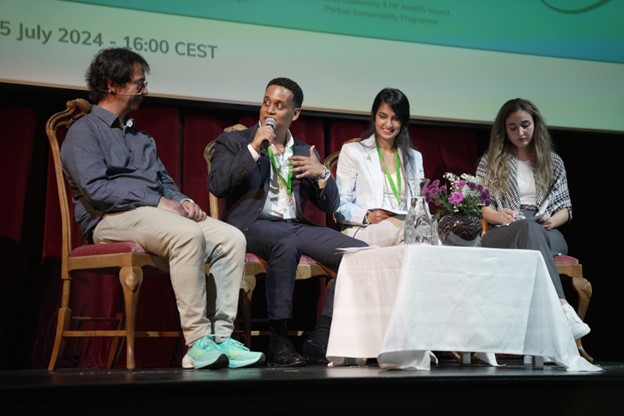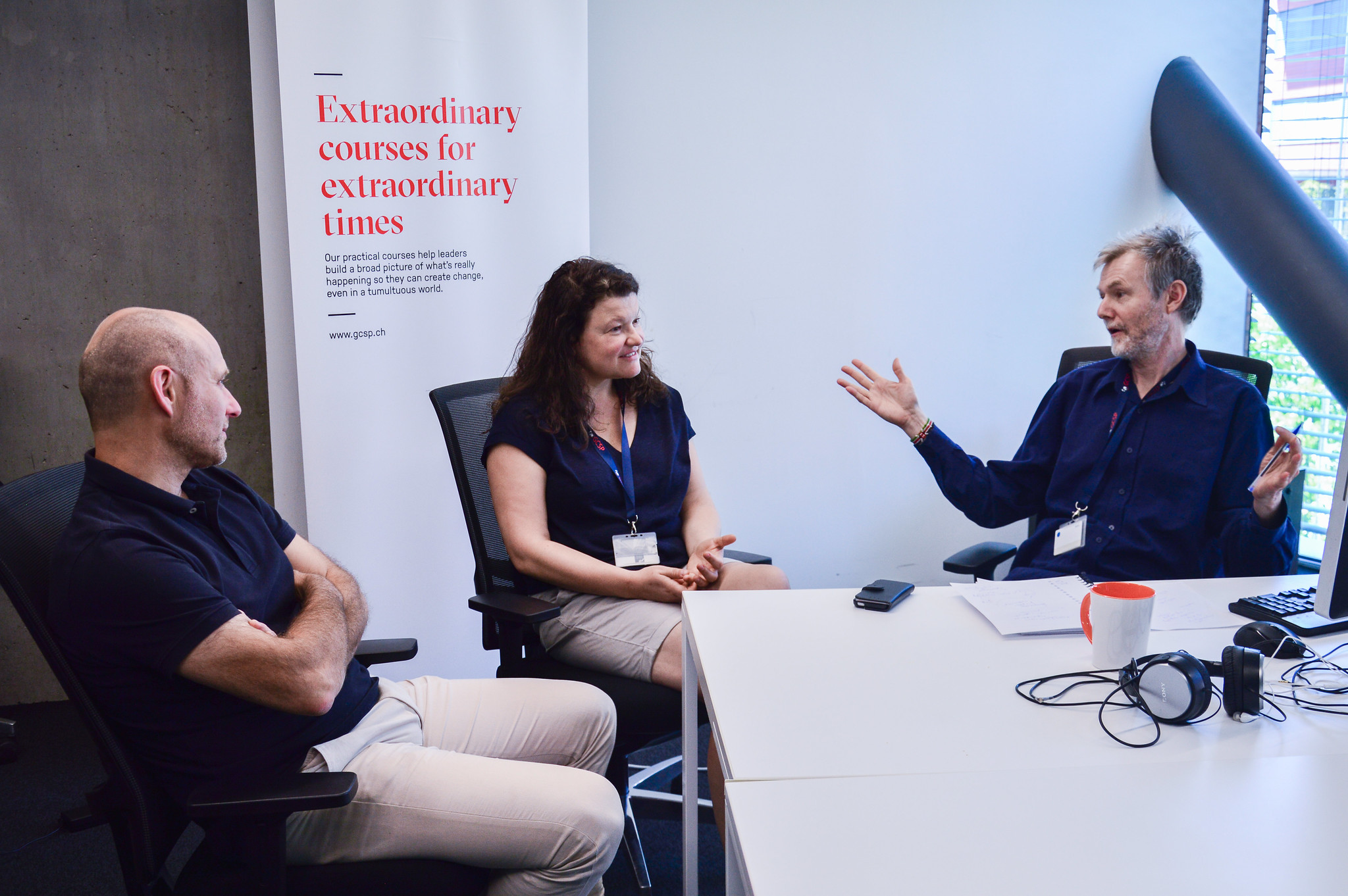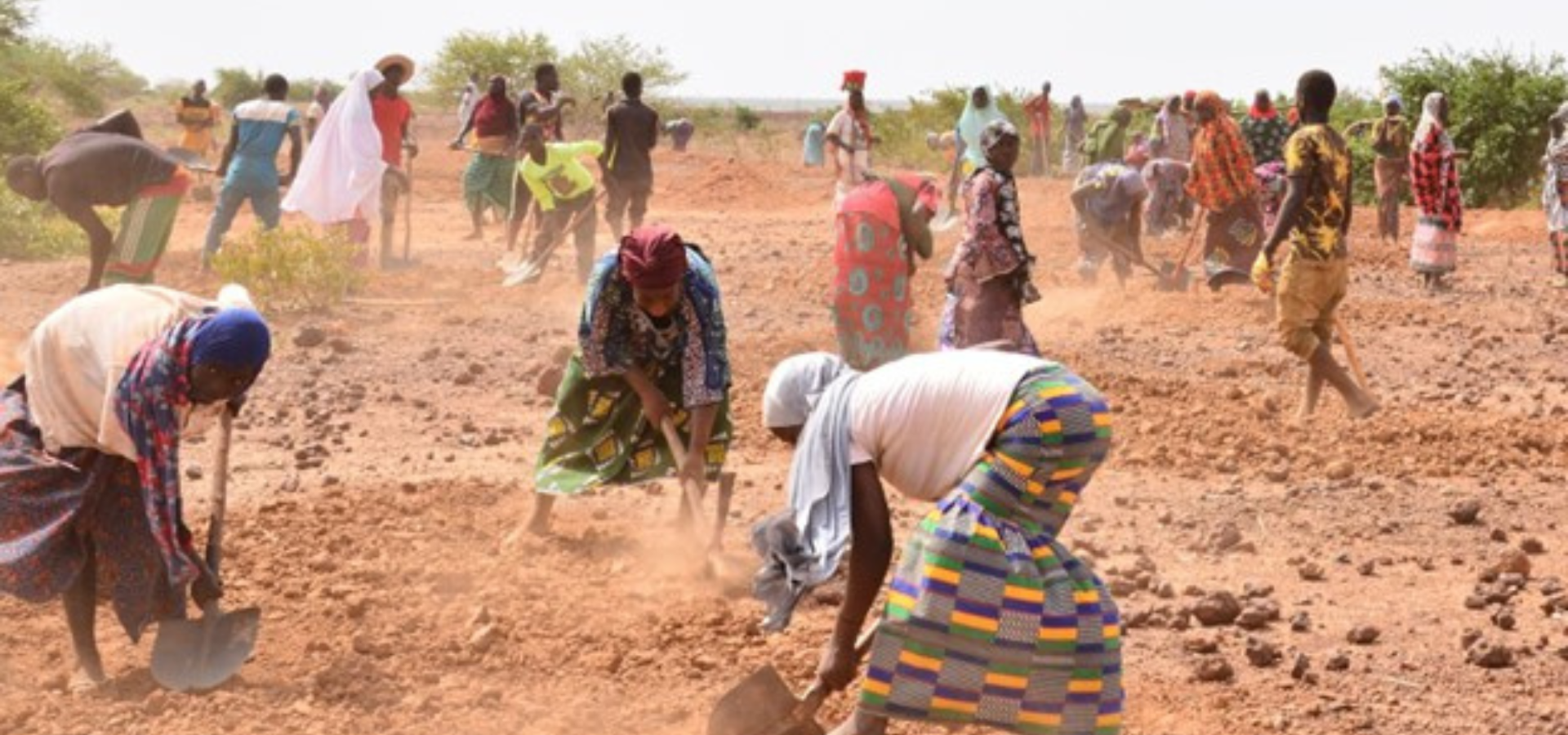A Call for Climate Collaboration at COP29
As COP29 opens in Baku, advocates for climate action, including Initiatives of Change, push for bold, actionable policy recommendations to address the urgent link between climate change, conflict and peacebuilding.
With COP29 kicking off on 11 November in Baku, Azerbaijan, Initiatives of Change International and the Caux Initiatives of Change Foundation have joined the world’s leading peacebuilding agencies and advocates in backing a set of actionable climate change policy recommendations for world leaders heading to Baku. In 1995, the United Nations established the Conference of the Parties, or COP, as an annual event bringing together world leaders to address climate change and its impacts. Now, nearly 30 years later, every corner of the global map is darkened by the emerging effects of climate change — from lethal flooding in Spain and the Sahara to receding glaciers in the Alps, raging wildfires in the Amazon to devastating hurricanes in the United States. The need for international collaboration and progress is more urgent than ever.
The policy recommendations, titled 'Navigating the Peace and Security Implications of Climate Change,' are the brainchild of an international community of practice called Environment, Climate, Conflict and Peace (ECCP), of which Initiatives of Change (IofC) is closely involved. Building on its work from last year's climate conference, the ECCP doubled down on policy advocacy for COP29. 'Implementing the recommendations will undoubtedly require trustbuilding,' said Dr. Alan Channer, a delegate from IofC's Initiatives for Land, Lives and Peace programme, and who contributed to the policy paper. 'As communities come under strain, conflicts can increase. At the same time, common threats can bring people together.'
Unity in Urgency
Topping the issue areas for the ECCP is the nexus of climate change and finance, with special attention towards alleviating climate-induced monetary losses that disproportionately affect under-resourced nations. Alongside climate finance, the ECCP emphasizes conflict sensitivity: promoting approaches to climate action at policy, programmatic and funding levels which are tailored to specific local contexts and thereby promote sustainable peace. Another policy issue highlighted in the paper is 'mitigating the climate and environmental impact of military and state security actors,' which rings especially relevant as emerging data unveils the environmental costs of the violence in the Middle East that is devastating both people and ecosystems and exacerbating human rights violations.
Accomplishing a swift course correction on climate change is a patently joint effort; indeed, the ECCP highlights the need for community engagement, particularly with youth, something that has been front of mind for the Caux Initiatives of Change's Executive Director, Ignacio Packer. 'Achieving real change in the climate crisis demands a shared commitment across generations. Our future hinges on listening, truly listening, to the energy, insights and demands of young leaders,' said Packer. 'We see it as our responsibility—and privilege—to make space for their voices, to let their vision take the lead.'

Bridging Theory and Reality
Developing the policy recommendations involved extensive input from 900 individuals and organizations that comprise the ECCP, including the Climate and Peace Advocacy Advisor of International Alert; the Climate, Conflict and Fragility Advisor of Oxfam UK; and IofC's Initiatives for Land, Lives and Peace (ILLP). Through this spirit of collective action, the authors of the paper hope to inspire a similar collaboration among world leaders at the COP29. 'For many of the diplomats at COP29, these conversations about climate change and conflict are theoretical,' said Annika Erickson-Pearson, who is a collaborating partner of IofC and chair for the ECCP. 'We are trying to provide gentle, steady, strong reminders that these ideas are concrete and deeply human.'
The ECCP will carry these policy recommendations into dialogues in Baku, with Dr. Alan Channer attending COP29 on behalf of the ILLP and as part of an ecumenical delegation brought together by the Commission for Climate Justice and Sustainable Development of the World Council of Churches. As a long-standing advocate with Initiatives of Change, Channer has played a central role in the 15 years of sustained climate work with IofC’s ILLP. While the programme’s scope of influence is firmly established in international dialogues, much of its on-the-ground programming helps to elucidate the interlinkages between land restoration, human security and climate resilience, bolstering community support for climate-friendly approaches such as farmer-managed natural regeneration.

Channer's hope for COP29 is that the combination of the ECCP's policy recommendations and a stronger presence from faith organizations might have more weight in the climate negotiations. 'The world faces unprecedented challenges and surmounting them will require changes in attitudes and behavior, increased transparency and relationships of trust,' said Channer. 'IofC's founding clarion call — to create a "hate-free, fear-free, greed-free world", starting in our own lives — was a familiar refrain in my childhood. It feels as potent and relevant as ever.’
Photo Credits
Header and Photo 3: Leela Channer
Photo 2: Caux Inititaitves of Change Foundation
